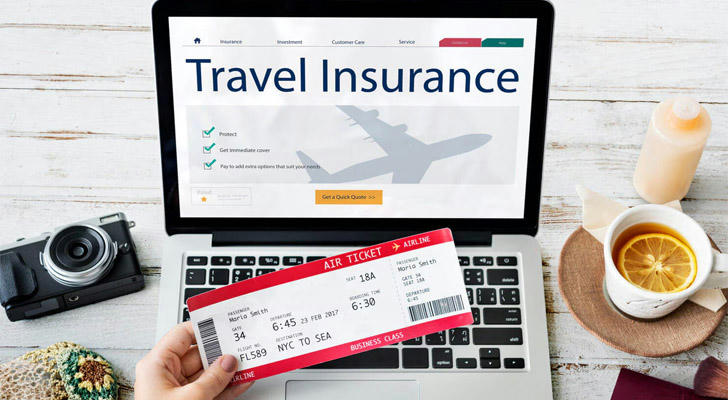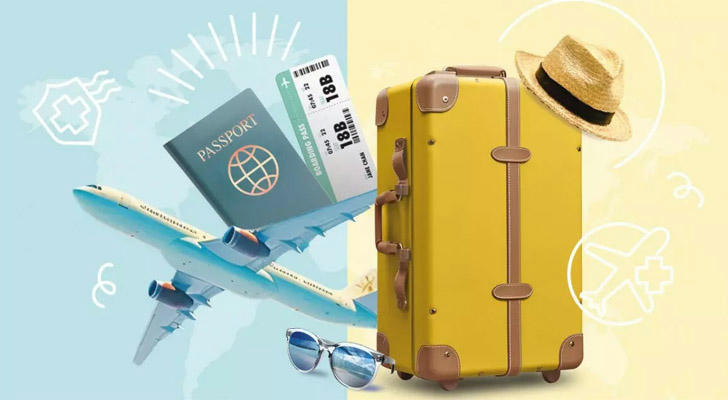How To Choose The Right Travel Insurance For You

Travel is one of the ways to explore the world and experience different cultures, but it also comes with various unforeseen risks. As a preventive measure, travel insurance can provide travelers with necessary financial protection and psychological comfort. This article will provide a comprehensive guide to choosing travel insurance, and combine case analysis to help you make wise decisions.

I.Types of travel insurance
Travel insurance is mainly divided into the following types, each type targets different needs and risks:
1.Standard travel insurance: Provides basic protection, such as medical expenses, emergency rescue, luggage loss or delay, and trip cancellation or interruption.
2.Comprehensive travel insurance: On the basis of standard travel insurance, more coverage is added, which may include high-risk sports insurance, personal liability insurance, home property insurance, etc.
3.Customized travel insurance: Provide customized insurance services according to the personal needs and travel characteristics of travelers, and you can freely choose the coverage and amount of insurance.
4.Single trip insurance: Provides protection for a specific trip, suitable for travelers who travel short distances or occasionally.
5.Annual travel insurance: Provides coverage for all trips within a year, suitable for frequent travelers or long-term travelers.
6.Business travel insurance: Designed for business travelers, in addition to basic travel insurance coverage, it also includes coverage for specific risks such as business interruption and business meeting cancellation.
7.Adventure travel insurance: Provides additional coverage for travelers who participate in high-risk activities (such as skiing, rock climbing, diving, etc.).
8.Family travel insurance: Provides coverage for family travel, which may include children's insurance, home property insurance, etc.
Each type of travel insurance has its own specific coverage and restrictions. When choosing, travelers should decide the most suitable insurance type based on their travel plans, activity types and personal needs.
II.Considerations for choosing travel insurance
When choosing travel insurance, you need to consider the following factors to ensure that you get the most suitable coverage for your needs:
1.Travel destination: Medical expenses and risk levels vary in different countries and regions, so you need to choose insurance that covers specific risks of the destination.
2.Travel activities: If you plan to participate in high-risk activities (such as skydiving, diving, rock climbing, etc.), you need to choose insurance that covers these activities.
3.Length of trip: Single trip or multiple trips per year will affect the choice of insurance, and annual insurance may be suitable for frequent travelers.
4.Personal health status: If you have health problems or need to carry special medicines, you should choose insurance that provides medical protection and medicine replacement.
5.Budget: The insurance cost is proportional to the coverage and amount, and you need to choose the right insurance according to your budget.
6.Insurance coverage: Understand the specific coverage of the insurance, including medical expenses, emergency rescue, trip cancellation, luggage loss, etc.
7.Insurance amount: Make sure that the insurance compensation amount can meet the possible medical expenses and related expenses.
Taking these factors into consideration can help travelers choose the most suitable travel insurance for themselves and ensure travel safety and financial security.

III.Judging the reputation and service quality of the insurance company
When choosing travel insurance, the reputation and service quality of the insurance company can be evaluated through the following key factors:
1.Company background and history: Understand the registration information, establishment time, development history and profitability of the insurance company, which can help judge the legitimacy and stability of the company.
2.Rating agency evaluation: Refer to the rating results given by rating agencies such as Standard & Poor's and Fitch, which usually reflect the company's financial stability and market reputation.
3.Products and services: Evaluate whether the insurance company provides a rich variety of travel insurance products, whether the claims service is efficient and convenient, and customer evaluation and feedback.
4.Market share and professional awards: Insurance companies with higher market share usually have higher credibility, and the professional awards they have received can reflect the company's industry status and credibility.
5.Complaint handling: Check the insurance company's complaint records and handling status. Good complaint handling ability is an important reflection of the company's service quality.
6.Financial status: Understand the insurance company's financial reports and solvency. Financially sound companies are more trustworthy.
7.Customer evaluation and word of mouth: Understand the customer satisfaction of the insurance company through evaluations and comments on the Internet and recommendations from friends and relatives.
8.The speed and efficiency of claims service: Understand the insurance company's claims process, timeliness, and customer satisfaction with claims services.
By combining these factors, you can make a comprehensive evaluation of the insurance company's reputation and service quality, so as to make a more informed choice.
IV.Strategies to avoid travel insurance traps
Strategies to avoid travel insurance traps include:
1.Read the terms in detail: Before purchasing insurance, read the terms and conditions of the insurance contract carefully, paying special attention to any possible exclusions or restrictions.
2.Understand the coverage: Make sure the insurance covers all activities you plan, especially high-risk activities such as skiing, diving, etc.
3.Check the medical limit: Confirm whether the medical coverage in the insurance is sufficient to cope with possible high medical expenses.
4.Confirm the deductible: Understand the deductible (deductible) in the insurance, that is, the expenses you need to bear before the insurance company pays.
5.Compare quotes: Get quotes from multiple insurance companies, compare prices and coverage, and choose the most cost-effective insurance.
V.Case
Ms. Li is a new workplace who loves traveling and plans a three-week free trip to Europe.
Ms. Li hopes that the insurance can cover risks such as medical expenses, luggage loss and trip cancellation. She compared the products of multiple insurance companies, paying attention to the coverage and price of the insurance. In the end, Ms. Li chose a product that provides global medical assistance and high luggage insurance. During the trip, Miss Li unfortunately encountered luggage delays, but she quickly contacted the insurance company and the problem was solved in a timely manner. Miss Li was satisfied with the insurance company's response speed and service quality, and believed that travel insurance was an important guarantee for her trip.

VI.Conclusion
Travel insurance is an important part of the travel plan. It not only provides necessary support in emergencies, but also makes your trip more secure. Through Miss Li's case, we can see that choosing travel insurance that suits your needs can allow you to enjoy your trip while getting the maximum protection. Remember, investing in a travel insurance is investing in peace of mind and protectionWhen choosing travel insurance, be sure to choose the most suitable insurance product based on your actual needs and travel characteristics to make your journey smoother and more enjoyable.
